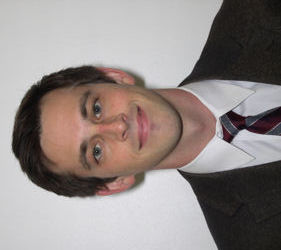By Nicholas Austin
My final year of medical school is already speeding by. In a blink, I have taken the Boards, completed my sub-I in internal medicine, rotated at away institutions, and submitted ERAS. I am about to plunge into interview season. One part of me thinks things are about to slow down and there will be time to relax and reflect. Another part of me thinks I have been saying that for the past three and a half years and it has yet to come true.
I have been reflecting more and more on a story that a faculty member told our class in the second year of medical school. It was a simple anecdote told in passing to explain one way to distinguish a syncopal episode from a seizure. However, now that I am closer to the end of medical school than the beginning, the final scene it paints in my mind has the feeling of summation and closure that all transitions deserve.
He began, “When evaluating the cause of a transient loss of consciousness, it can be helpful to ask witnesses what kind of activity they saw. Did the patient slump over and ease themselves to the ground, fall like a rock, or shake all over and become incontinent of urine?”
Here, he smiled to himself.
“Another way to tell is to look at how the crowd reacts to someone having a transient loss of consciousness (TLOC). When someone has a syncopal episode, people often run toward the person to catch them as they fall. When someone has a seizure, people run away from the person. Seizures are violent, and it can be quite startling if you don't realize what is happening.”
At this point, the class looked a bit skeptical.
“Several years ago, I was in the grocery store and saw this play out exactly. I was in a crowded aisle, and the man to my left began to seize. It knocked lots of items off the shelf and made lots of noise. I was focused intently on the man, but when I glanced up, I noticed the crowded aisle was deserted. Shopping carts were abandoned. Purses were unattended.
Aside from me and the seizing man, the only person left was a little girl no more than 9 years old. She was standing firm, waiting to be helpful. Apparently, she didn't know enough to be scared. Doubtless she will be applying for medical school in a few years.”
Here, the skepticism was replaced with amusement. We chuckled and hoped we would have done the same in our childhoods.
“Everything was fine in the end. The man stopped seizing on his own. Me and the little girl just made sure there was nothing around him on which he could hurt himself. No need to put anything in his mouth to prevent tongue biting. Evidence shows that isn't very helpful for him and only risks a nasty hand bite on your part. The ambulance came and brought him to the hospital. Eventually, I found out he had a chronic seizure disorder and had stopped taking his medication that week, explaining the breakthrough seizure.
The point, of course, is that the history goes a long way in finding the cause of a transient loss of consciousness.”
We clapped and scurried away to return to our study holes, preparing feverishly for Step 1 with the urgency that forest animals prepare for hibernation.
Years later, that story does not come to mind because of its original intent, although it is an amusing way to recall part of the differential diagnosis for transient loss of consciousness. It comes to mind because of that final image: The doctor standing on one side of the man, large and looming after decades of experience and training; the girl on the other, armed only with enthusiasm and a giving spirit; and the patient in the middle.
That image, for me, is a summation of these last 4 years. I entered medical school to train for a profession in which I had virtually no fund of knowledge. Relative to those teaching me, I was childlike in what I knew. I had only an enthusiasm to learn so that I might one day help others, and this drove me to read and read and read. With each page and patient encounter, I have been inching my way from the child's side of the patient to the physician's. I am not there yet nor will I be when I take my diploma in May. I think I will be inching over the rest of my career, hopefully closer every day, and always with the patient at the center of things.
However, at least I know one thing: Some people run toward syncope and away from seizures; others stay regardless in order to offer help, even if they do not quite know how.

Nicholas Austin
Medical College of Georgia at Augusta University
Graduating Class of 2020
Back to the December 2020 issue of ACP IMpact

